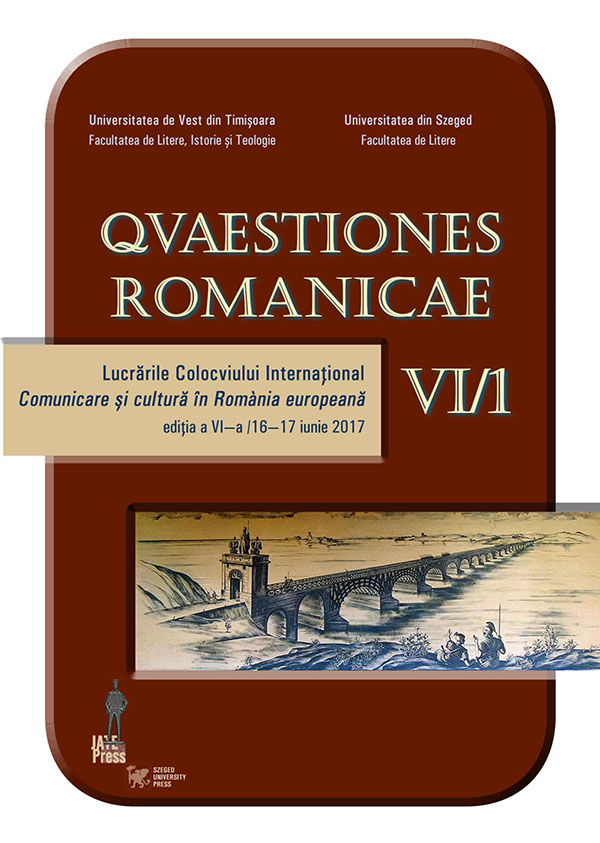I termini della scultura. Proposta per un glossario italiano–romeno
Abstract: (Sculpting Terms. Proposal for an Italian-Romanian Glossary) The vocabulary of plastic artists, in our case the vocabulary of sculptors, as well as the lexicon of all the other specialized languages, contains, along with words taken from the ordinary language, specialized terms which are, in most of the cases, univocal, precise, and which are needed in order to achieve an act of communication which is unambiguous and direct. This is the reason why the meaning of some terms pertaining to the field of sculpting can be obscure to the ones who are not familiar with this field, while it is very clear to the experts. If the members of the same professional association communicate perfectly with each other due to the fact that they use the same subcode, the others, on the other hand, need explanations even when the term is being used by the speakers who have the same mother tongue. For example, not every Italian knows the meaning of the terms lizza, bocciarda, sgorbia, unghietto. All the more so when we are dealing with a native speaker of a foreign language. Consequently, we consider that a brief Italian‐Romanian glossary would turn useful, a glossary containing terms pertaining to the field of sculpting in order to help the ones who intend to specialize themselves in this particular field.
Keywords: vocabulary, plastic artists, sectorial languages.
Riassunto: Il vocabolario degli artisti plastici, nel nostro caso degli scultori, come tutto il lessico degli altri linguaggi settoriali, contiene, accanto alle parole prese dal linguaggio quotidiano, termini specializzati che sono in gran parte univoci, precisi, e servono a realizzare una comunicazione non ambigua e diretta. Proprio per questo il significato di alcuni termini del campo della scultura può essere oscuro per i non adetti a questo campo, invece per quelli iniziati è molto chiaro. Se i membri della stessa associazione professionale comunicano perfettamente perché usano lo stesso sottocodice, gli altri, invece, hanno bisogno di spiegazioni, anche quando il termine viene usato dai parlanti che hanno la stessa lingua madre. Per esempio non tutti gli italiani conoscono il significato dei termini lizza, bocciarda, sgorbia, unghietto. Tanto più quando si tratta di una persona di un’altra lingua nativa. Dunque, consideriamo utile a realizzare un breve glossario italiano – romeno che contenga termini appartenenti al campo della scultura per aiutare coloro che vogliono specializzarsi in questo settore.
Parole-chiave: vocabolario, artisti plastici, linguaggi settoriali.
